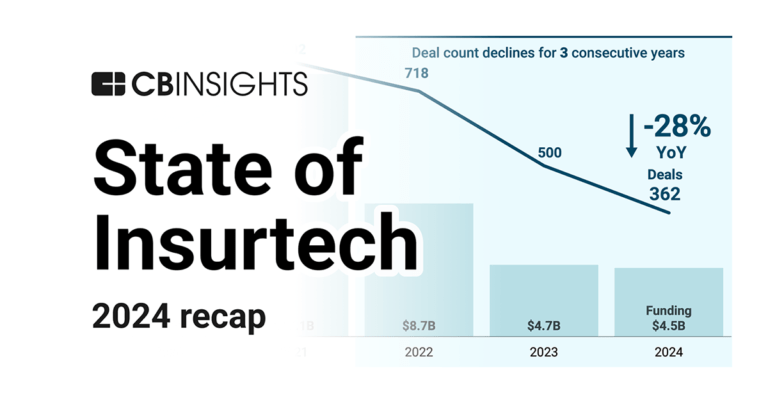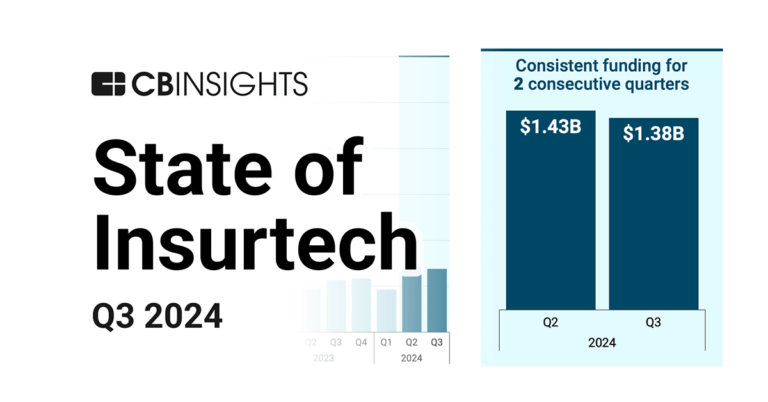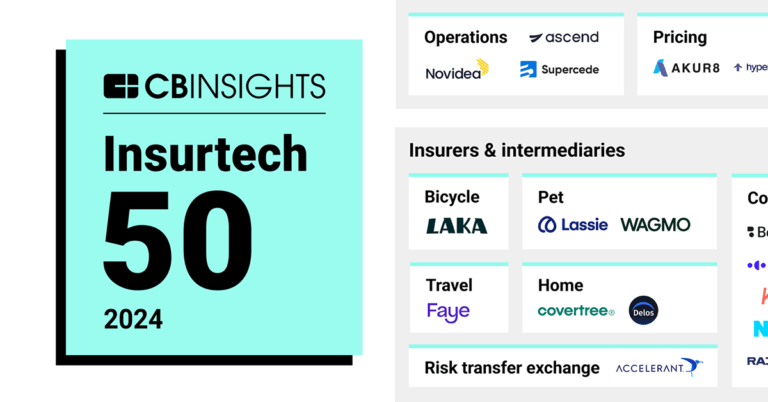
Altana AI
Founded Year
2018Stage
Series C | AliveTotal Raised
$322MValuation
$0000Last Raised
$200M | 8 mos agoRevenue
$0000Mosaic Score The Mosaic Score is an algorithm that measures the overall financial health and market potential of private companies.
+37 points in the past 30 days
About Altana AI
Altana AI specializes in artificial intelligence-driven supply chain management solutions within the logistics and compliance sectors. The company offers a platform, the Altana Atlas, which uses artificial intelligence to analyze networks of data for global value chain visibility, compliance management, procurement, carbon footprint tracking, and security. Altana AI primarily serves governments, logistics providers, and major businesses worldwide, providing tools for compliance, risk assessment, and supply chain optimization. It was founded in 2018 and is based in Brooklyn, New York.
Loading...
ESPs containing Altana AI
The ESP matrix leverages data and analyst insight to identify and rank leading companies in a given technology landscape.
The sustainable procurement platforms market enabls organizations to make environmentally and socially conscious choices when selecting suppliers and products. They provide tools for assessing supplier sustainability, carbon footprint, and adherence to ethical practices, helping companies meet their ESG goals and reduce their ecological impact. Additionally, these platforms facilitate transparency…
Altana AI named as Highflier among 8 other companies, including EcoVadis, Worldfavor, and Sievo.
Loading...
Research containing Altana AI
Get data-driven expert analysis from the CB Insights Intelligence Unit.
CB Insights Intelligence Analysts have mentioned Altana AI in 3 CB Insights research briefs, most recently on Feb 13, 2025.

Feb 13, 2025 report
State of Insurtech 2024 Report
Nov 14, 2024 report
State of Insurtech Q3’24 Report
Aug 28, 2024 report
Insurtech 50: The most promising insurtech startups of 2024Expert Collections containing Altana AI
Expert Collections are analyst-curated lists that highlight the companies you need to know in the most important technology spaces.
Altana AI is included in 8 Expert Collections, including Supply Chain & Logistics Tech.
Supply Chain & Logistics Tech
4,560 items
Companies offering technology-driven solutions that serve the supply chain & logistics space (e.g. shipping, inventory mgmt, last mile, trucking).
Unicorns- Billion Dollar Startups
1,270 items
Insurtech
4,489 items
Companies and startups that use technology to improve core and ancillary insurance operations. Companies in this collection are creating new product architectures, improving underwriting models, accelerating claims and creating a better customer experience
Fintech
9,451 items
Companies and startups in this collection provide technology to streamline, improve, and transform financial services, products, and operations for individuals and businesses.
Decarbonization Tech
2,372 items
Companies in the Decarbonization & ESG space, including those working on enterprise and cross-industry decarbonization and emissions monitoring solutions, as well as ESG monitoring and carbon accounting.
Insurtech 50 (2024)
50 items
Report: https://www.cbinsights.com/research/report/top-insurtech-startups-2024/
Latest Altana AI News
Mar 25, 2025
While some engineers believe that getting their hands dirty is the best way to evolve, others combine hands-on experience with helpful resources to continuously refine their technical acumen. Photo: Shutterstock Software engineering is constantly changing, spurred by advances in AI and the continuous evolution of languages, frameworks and tools. So how do engineers keep up? In Tuan Pham’s case, it’s simply a matter of getting his hands dirty, whether that involves digging into API documentation or experimenting with code. “For me, keeping my engineering skills sharp comes down to the simple joy of building software and solving problems,” the principal software engineer at Sisense said. While diving into the technical weeds is beneficial for any engineer, some put aside time to garner knowledge from outside resources. For instance, Swati Murugappan, a software engineer analyst at MarketAxess , reads newsletters from Morning Brew and TLDR Web Dev to stay up to date on the most recent changes in the tech industry. “Both of these newsletters have eye-catching headers and short descriptions, with the option to click on articles and read more,” she said. “It’s a ‘choose your focus for a day’ adventure rather than an information dump, which I think makes it much easier to grasp tech news and trends.” At Altana , Senior Software Engineer Nastasia Efremkina also engages frequently with outside resources, with two of her favorites being the Changelog podcast and Pragmatic Engineer newsletter. But besides that, she feels as though the people she gets to work alongside each day have become one of her greatest sources of growth. “Altana’s talent is incredible, and I’m constantly learning from colleagues, both in engineering and in broader fields,” Efremkina said. Below, Pham, Murugappan and Efremkina share more about how they keep their engineering skills sharp and how the culture at their companies on their teams empowers them to continuously grow. Senior Software Engineer • Altana Altana ’s value chain management system helps organizations take command of their extended supplier and distribution networks, offering visibility, AI-powered insights and collaborative workflows. Give us a snapshot of what you do to stay on top of your engineering knowledge and skills. I love learning in many different ways. For general knowledge and exposure, I enjoy listening to podcasts, and then I often dive deeper with books or long-form articles. If there’s cool tech or a library I want to explore, I’ll spend an afternoon building a mini project to get hands-on experience. To stay updated on the latest trends, I usually listen to podcasts and read articles and substacks. My favorites are the Changelog podcast and Pragmatic Engineer newsletter. They provide me with the high-level key insights and trends that I then explore further in my own free time — and generally not after a long day of work. I’ll try that every month. I try to allocate a day or so on the weekend, and otherwise it’s what washes over me through podcasts and reading up on articles. “If there’s cool tech or a library I want to explore, I’ll spend an afternoon building a mini project to get hands-on experience.” What are your go-to resources for keeping your engineering skills sharp? My job! A huge perk of Altana is that there are so many interesting engineering problems to solve, and I’m often being challenged with both the scale and complexity of the problems — within reason, of course. We have several Slack channels where there is also a good amount of space to explore what’s the latest and greatest in the engineering world. What does the learning culture look like at Altana? Altana really promotes learning in so many ways. Altana provides a professional stipend to invest in our own personal growth, but the greatest wealth of the learning culture is centered around my coworkers. Altana’s talent is incredible, and I’m constantly learning from colleagues, both in engineering and in broader fields. The likelihood that a coworker you’re speaking with has a doctorate in their area of expertise is high, but what’s even more remarkable is how down-to-earth and collaborative everyone is, even though they’re the smartest people I’ve ever worked with. Software Engineer Analyst • MarketAxess MarketAxess offers a fixed-income trading platform, which is designed to enhance trading efficiency, provide access to a diverse pool of liquidity and deliver cost savings to institutional investors and broker-dealers. Give us a snapshot of what you do to stay on top of your engineering knowledge and skills. One of the most important things about engineering to me, and certainly one of the most exciting things, is to be curious. As a junior developer, I’m always surrounded by new and evolving tech and am constantly reminded that all problems can be solved when broken down step by step. I love to learn about emerging technologies, sometimes even from friends or teammates. And I find it enjoyable spending time reading through documentation as the various software I know get updated. It’s always daunting to start learning a new technology-related concept, be that a new programming language, hardware or build tools. But a key focus is to have a roadmap to gain a broad understanding of what something is and go deeper by learning about specific uses or functionalities. My monthly goal is to dedicate a small amount of time, sometimes just an hour or two a week, to learning about software used often on my team here at MarketAxess. These range from courses on Udemy and understanding build processes to learning about dependencies from external libraries. On a daily basis, I like high-level, bite-sized information. On a weekly basis, I take in denser information and digest it slowly. What are your go-to resources for keeping your engineering skills sharp? I like to utilize resources that bring information right to my inbox. The daily newsletters from Morning Brew are easily digestible pieces that keep me updated on tech as well as finance and world news, all of which not only interest me but are relevant to my work. TLDR Web Dev is also a great tool. I enjoy their news and tutorials on front-end web development, especially as the field evolves and new libraries come up as others go dormant. I have had an interest in front-end web development for a while and love learning about it this way. Both of these newsletters have eye-catching headers and short descriptions, with the option to click on articles and read more. It’s a “choose your focus for a day” adventure rather than an information dump, which I think makes it much easier to grasp tech news and trends. To learn new technologies, I’ve found Udemy a great starting place to understand concepts generally, and YouTube tutorials help me create sandboxes and see how the code works on my own machine. I grew up loving word games and brain teasers, and there are new code game platforms and exercises released often, so I find it necessary to gamify learning when and wherever possible to keep it fresh and fun. “I grew up loving word games and brain teasers, and there are new code game platforms and exercises released often, so I find it necessary to gamify learning when and wherever possible to keep it fresh and fun.” What does the learning culture look like on your engineering team? Almost all engineers will say that the most learning you do will be on the job, so it’s important to have a mindset of flexibility and an ability to learn while working on tasks, as opposed to finishing a full course and then settling into work. Having a knowledge base is always handy, so spending just a few hours or a day or two understanding what a certain technology does can make a world of a difference before setting it up and starting work. From there, much of the learning becomes hands-on, with a big emphasis on shadowing and pair-coding to help with knowledge transfer from seniors to juniors. I find it essential to take notes and clarify tasks in as much detail as possible. But I’ve also learned to expect the unexpected. Sometimes, things simply do not function in the ways we expect, and unexpected dependencies get impacted. It’s part of the learning process to fail early — and fail often. We frequently have innovation and planning sprints, which are sprints set aside for developers to dedicate time to learning, so I always keep a list of code bases and topics to explore during those times. Principal Software Engineer • Sisense Sisense ’s analytics platform is designed to help organizations make more informed business decisions, enabling teams to analyze and explore valuable insights. Give us a snapshot of what you do to stay on top of your engineering knowledge and skills. Modern software engineering moves quickly — sometimes, too quickly. With so much information available, staying on top of it is both an advantage and a challenge. I feel this, too. My approach is to focus on hands-on, targeted learning, using real problems as opportunities to deepen my understanding. Watching the road from the passenger seat doesn’t cut it; I take the driver’s seat when coding solutions, reinforcing concepts through direct experience. Just as important is managing complexity across different levels of abstraction — knowing when to zoom in on the details and when to step back to see the bigger picture. More often than not, code is still the answer. What are your go-to resources for keeping your engineering skills sharp? For me, keeping my engineering skills sharp comes down to the simple joy of building software and solving problems. I learn best by getting my hands dirty — digging into API documentation, experimenting with code, pulling my hair out when errors crop up, joyfully seeing the code build and run, writing my own notes, and repeating the process. Searching effectively is just as important, whether it’s debugging an issue or learning from open-source libraries. I often skim changelogs, browse GitHub issues and discussions, and chat with AI models to explore different perspectives. And when something doesn’t add up, I don’t mind diving into an open-source library’s internals to figure it out myself. “I often skim changelogs, browse GitHub issues and discussions, and chat with AI models to explore different perspectives.” What does the learning culture look like on your engineering team? At Sisense, my engineering team is fortunate to work with cutting-edge technologies, building open-source developer tools for embedded analytics. This creates numerous opportunities for growth and learning. We prioritize keeping our libraries up-to-date, secure and developer-friendly, which drives us to continuously improve our code and processes. What I appreciate most is our disruptor mindset — constantly questioning, experimenting and pushing boundaries. This approach, paired with open collaboration, keeps us ahead of trends and fosters continuous growth. I also learn a lot from my talented colleagues. Through code reviews, design discussions and knowledge-sharing sessions, I get to see different approaches and perspectives. These interactions are invaluable in helping me improve and expand how I approach problems.
Altana AI Frequently Asked Questions (FAQ)
When was Altana AI founded?
Altana AI was founded in 2018.
Where is Altana AI's headquarters?
Altana AI's headquarters is located at 25 Kent Avenue, Brooklyn.
What is Altana AI's latest funding round?
Altana AI's latest funding round is Series C.
How much did Altana AI raise?
Altana AI raised a total of $322M.
Who are the investors of Altana AI?
Investors of Altana AI include Google Ventures, OMERS Ventures, Activate Capital, US Innovative Technology Fund, March Capital and 16 more.
Who are Altana AI's competitors?
Competitors of Altana AI include Bendi and 6 more.
Loading...
Compare Altana AI to Competitors

RepRisk is a company in the field of environmental and social governance (ESG) data science, operating within the technology and financial services sectors. The company specializes in the analysis of public information to identify material ESG risks using artificial intelligence, machine learning, and human intelligence. RepRisk's main offering is the ESG Risk Platform, a database that provides due diligence data and risk metrics on companies, real assets, and countries, supporting decision-making for financial institutions and corporations. It is based in Zurich, Switzerland.

Risk Ledger specializes in supply chain security and third-party risk management within the cybersecurity domain. The company offers a platform that facilitates real-time monitoring and management of supply chain risks, compliance with cybersecurity frameworks, and automated reassessments for supplier due diligence. Risk Ledger's solutions cater to various sectors including public sector, critical national infrastructure, financial services, insurance, and technology. It was founded in 2018 and is based in London, United Kingdom.
Polecat focuses on business intelligence related to risk, reputation, and sustainability across various sectors. The company offers a platform that uses predictive AI to analyze data from news, social media, and events to provide insights for organizations. Polecat's services aim to assist organizations in managing reputational risks and measuring the impact of their actions. It was founded in 2007 and is based in London, England.

Sayari provides corporate transparency and supply chain risk intelligence software within the risk management industry. The company offers a platform that harvests and analyzes corporate and trade data, providing insights into hidden risks and enabling cross-border investigations. Sayari's solutions are primarily utilized by government agencies, financial institutions, and corporations to enhance their risk assessment and investigative processes. It was founded in 2015 and is based in Washington, District of Columbia.

TealBook focuses on providing a Supplier Data Platform (SDP) within the procurement and supply chain management industry. The company offers services that automate the collection, enrichment, and distribution of supplier data to enhance procurement technologies and processes. TealBook's platform serves various sectors, including government, life sciences, retail, financial services, higher education, and technology. It was founded in 2015 and is based in Toronto, Canada.

Project44 focuses on supply chain visibility in the logistics and transportation industry. The company offers a platform that provides real-time tracking of shipments and enables proactive management of inventory in transit, optimization of carrier and lane performance, and management of port congestion. It primarily serves sectors such as consumer goods, food and beverage, retail, manufacturing, and life sciences. It was founded in 2014 and is based in Chicago, Illinois.
Loading...
